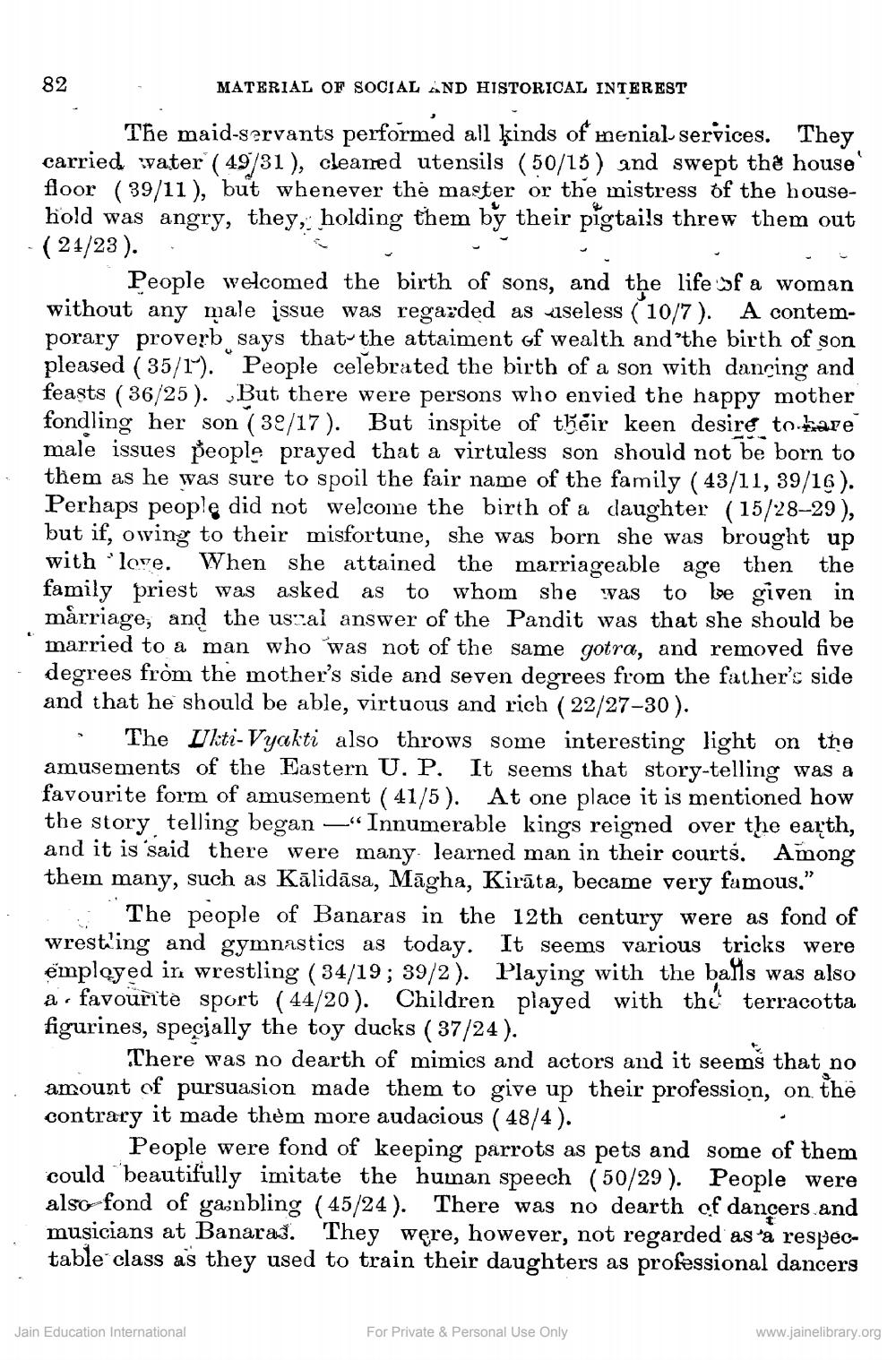________________
82
MATERIAL OF SOCIAL AND HISTORICAL INTEREST
The maid-servants performed all kinds of menial services. They carried water (49/31), cleaned utensils (50/15) and swept the house floor (39/11), but whenever the master or the mistress of the household was angry, they, holding them by their pigtails threw them out (21/23).
People welcomed the birth of sons, and the life of a woman without any male issue was regarded as useless (10/7). A contemporary proverb says that the attaiment of wealth and 'the birth of son pleased (35/1). People celebrated the birth of a son with dancing and feasts (36/25). But there were persons who envied the happy mother fondling her son (32/17). But inspite of their keen desire to hare male issues people prayed that a virtuless son should not be born to them as he was sure to spoil the fair name of the family (43/11, 39/16). Perhaps people did not welcome the birth of a daughter (15/28-29), but if, owing to their misfortune, she was born she was brought up with love. When she attained the marriageable age then the family priest was asked as to whom she was to be given in mårriage, and the ustal answer of the Pandit was that she should be married to a man who was not of the same gotra, and removed five degrees from the mother's side and seven degrees from the father's side and that he should be able, virtuous and rich (22/27-30).
The Ukti-Vyakti also throws some interesting light on the amusements of the Eastern U. P. It seems that story-telling was a favourite form of amusement (41/5). At one place it is mentioned how the story telling began "Innumerable kings reigned over the earth, and it is said there were many learned man in their courts. Among them many, such as Kalidasa, Magha, Kirata, became very famous."
The people of Banaras in the 12th century were as fond of wrestling and gymnastics as today. It seems various tricks were employed in wrestling (34/19; 39/2). Playing with the balls was also a favourite sport (44/20). Children played with the terracotta figurines, specially the toy ducks (37/24).
There was no dearth of mimics and actors and it seems that no amount of pursuasion made them to give up their profession, on the contrary it made them more audacious (48/4).
People were fond of keeping parrots as pets and some of them could beautifully imitate the human speech (50/29). People were also fond of gambling (45/24). There was no dearth of dancers and musicians at Banaras. They were, however, not regarded as a respectable class as they used to train their daughters as professional dancers
Jain Education International
For Private & Personal Use Only
www.jainelibrary.org




